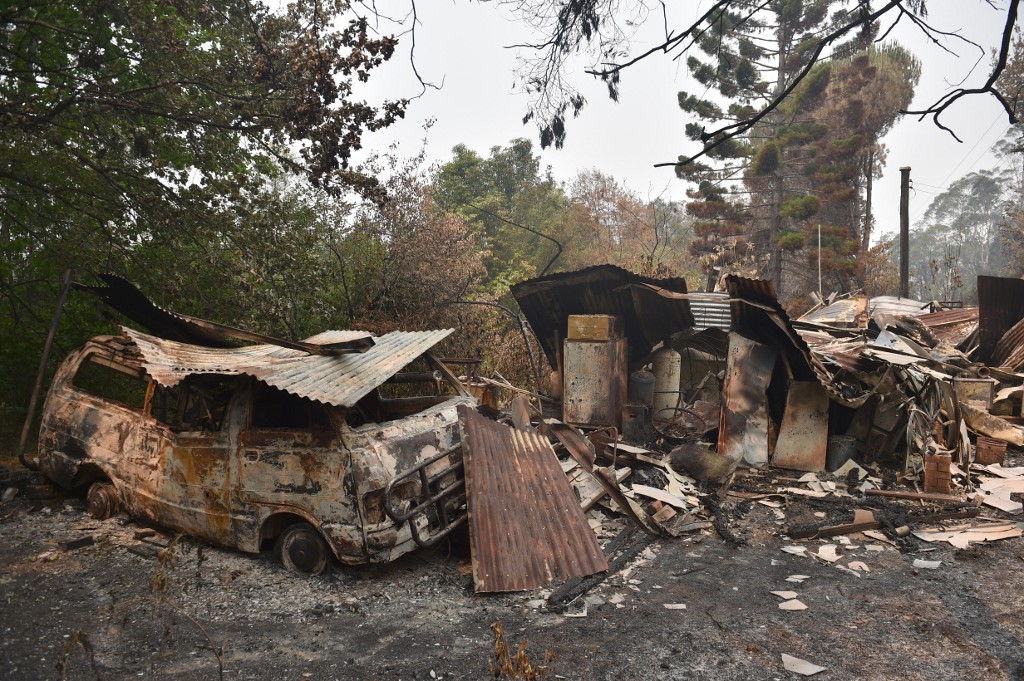
A house and van are seen destroyed after bushfires ravaged the town of Bilpin, 70km west of Sydney on December 29, 2019. A heatwave is due to sweep across parts of New South Wales in the coming days, with deteriorating bushfire conditions expected to hit on New Years Eve on December 31. Photo by PETER PARKS / AFP
SYDNEY — Thousands of tourists risked being stranded in Australia’s south east Monday, as a new heatwave left firefighters across the country bracing for another round of potentially catastrophic bushfire.
Hundreds of blazes are burning across Australia, which is experiencing a devastating summer bushfire season fuelled by a prolonged drought and climate change.
More than 30,000 people were told to evacuate Victoria state’s popular East Gippsland region Sunday amid fears soaring temperatures and gusting winds would stoke three large blazes, cutting off the last major road still open.
Victoria Emergency Management Commissioner Andrew Crisp said residents and holidaymakers still in the area faced being stranded as it was now “too late to leave”, with his agency warning it was “not possible” to provide aid to all visitors in the area.
Neighboring South Australia is experiencing “catastrophic” fire conditions in some areas as temperatures reach above 40 degrees Celsius (104 degrees Fahrenheit) and storms bring damaging winds.
The Country Fire Service’s Brenton Eden said it would be a “very dangerous” day for people in the state, with lightning already sparking a number of blazes.
“Winds are gusting and unfortunately this is a dry lightning front that is going to move rapidly across South Australia,” he told national broadcaster ABC.
Conditions are also expected to deteriorate over the next two days in worst-hit New South Wales, where 100 fires were burning Monday morning including more than 40 uncontained.
This season’s bushfires have killed 10 people, destroyed more than 1,000 homes and scorched more than three million hectares (7.4 million acres) — an area bigger than Belgium.
Sydney and other major cities have been shrouded in toxic bushfire smoke haze for weeks, forcing children to play indoors and causing professional sporting events to be cancelled.
The crisis has focused attention on climate change — which scientists say is creating a longer and more intense bushfire season — and sparked street protests calling for immediate action to tackle global warming.
While conservative Prime Minister Scott Morrison belatedly acknowledged a link between the fires and climate change, he has continued his staunch support of Australia’s lucrative coal mining industry and ruled out further action to reduce emissions.
A petition to cancel Sydney’s famous New Year’s Eve fireworks and use the money to fight bushfires ringing the city has topped 270,000 signatures, but officials say the show will go on.
Sydney has spent Aus$6.5 million ($4.5 million) on this year’s fireworks display — funds that the Change.org petition argues would be better spent on supporting volunteer firefighters and farmers suffering through a brutal drought.